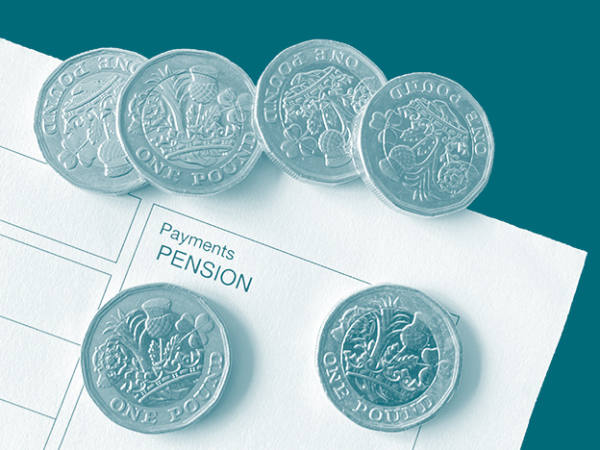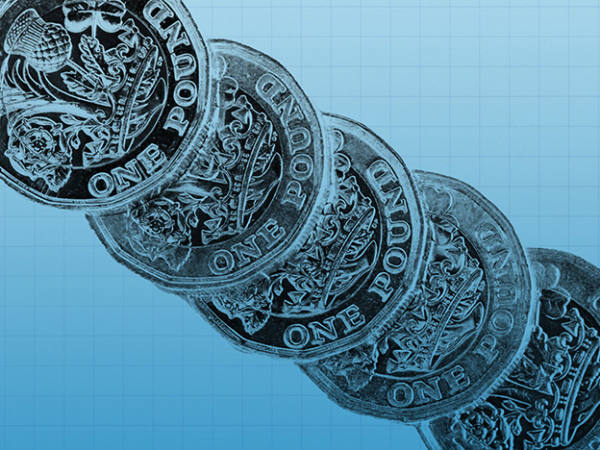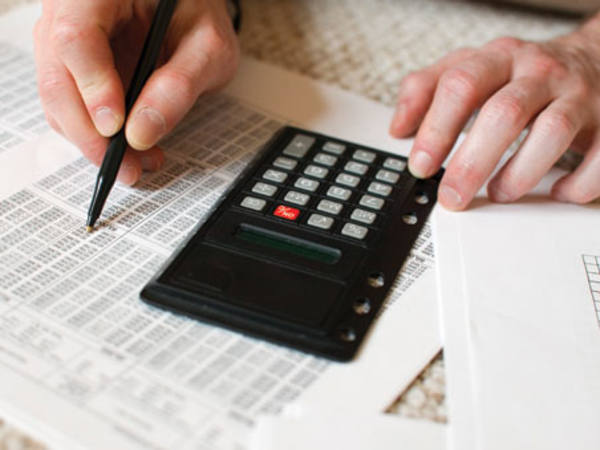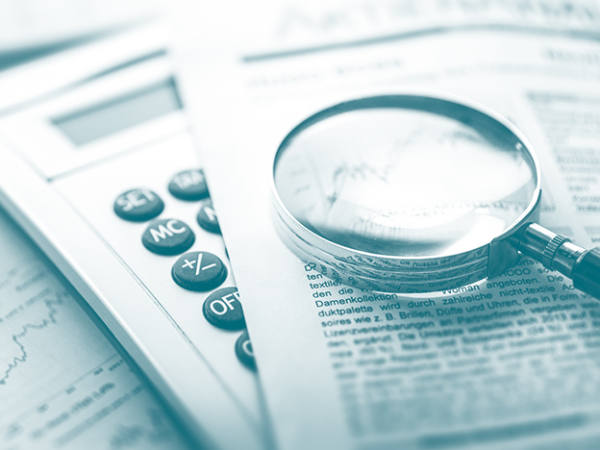- Taking money from your pension before you retire has tax consequences
- Doing this also reduces the size of pot you will have when you do retire
- It is better to withdraw from other assets such as cash savings if possible
Rising bills and increasing costs may mean you are looking for additional sources of money and if you are over age 55, you might be tempted to tap into what is likely to be your largest pot – your pension even if you have not retired. Other reasons for taking money from your pension early might include repaying debt such as outstanding mortgage balances, paying for family members' long-term care fees, children's school fees or university costs, or helping children get onto the property ladder.
However, there are a number of reasons why you should avoid touching your pension until you need it for the purpose it is intended – your retirement.
After age 55, you can take up to 25 per cent of defined contribution (DC) workplace or personal pensions tax free, but anything above this is subject to tax at your marginal rate. This means that if you draw an income from your pension in addition to what you are already earning, you could be pushed into a higher tax bracket. "Drawing taxable pension income could be taxable at higher or additional rates, or push you into those tax brackets due to your other income sources," says Michael Lapham, director of financial planning at Mercer & Hole. "You may unnecessarily pay 40 or 45 per cent income tax now on your pension income whereas that rate may be much lower in later years."
Taking money out of a DC pension other than the 25 per cent tax-free entitlement triggers the Money Purchase Annual Allowance (MPAA), which means you cannot contribute more than £4,000 a year to it – instead of up to £40,000. You also lose the ability to carry forward up to three years of unused allowances in the current tax year.
"The MPAA severely restricts what you can invest in a pension at a time when you may be earning the most and therefore capable of investing the most," adds Martin Ansell, pensions expert at NFU Mutual. "It's vital you don't [withdraw more than the 25 per cent] as that will automatically trigger it. The £4,000 limit includes employer contributions, and many people earn more towards the end of their careers, so not only will they have more capacity to invest in their pension, they could also be offered higher employer contributions. By avoiding the MPAA, many will be able to invest more into their pension."
By not boosting your pension to the full extent possible, your overall pot will be smaller than it could have been when you retire, especially as you have also taken money out of it. This could mean a less comfortable retirement or your retirement savings running out before the end of your life.
But if you are no longer contributing to pensions and are fairly certain that you will not in the future, so that MPAA is not an issue, you could consider taking money from your pension.
There are also a number of reasons for not taking your 25 per cent tax-free entitlement from your pension before you have retired. "Once you have taken the 25 per cent tax-free cash on a portion of your pension you cannot take it again," says Joshua Gerstler, chartered financial planner at the Orchard Practice. "You may be better off leaving the pension to grow for longer and benefiting from a higher tax-free cash amount in the future."
Taking tax-free cash prior to retirement means that you only have a crystallised fund when you retire, so any income withdrawn from this in excess of your personal allowance would be subject to income tax. In this instance, income from your private pensions is likely to be taxable when your state pension starts to pay out because at its full current annual value – £9,627.80 – it uses up most of the personal allowance for income tax which has been frozen at £12,570 until at least 2026. "Taking tax-free cash early reduces the potential for you to draw a tax-efficient income in your retirement," adds Gary Smith, director of financial planning at wealth manager Evelyn Partners. "And many workplace pension schemes do not offer a flexi access drawdown plan so to access tax-free cash, you would need to transfer into an alternative arrangement. But this could result in contributions stopping as you could have effectively opted out of the scheme to transfer."
Money within pensions can grow free of capital gains tax (CGT), whereas outside this environment its investment growth could be taxed.
Pensions usually fall outside your estate for inheritance tax (IHT) purposes, so money within them can be passed on to beneficiaries efficiently. "As soon as you take any money out of your pension it becomes part of your taxable estate and would be subject to IHT if you die," says Ansell.
If you die before age 75, the beneficiaries to whom you pass your pension can draw from it income tax free. If you die on or after your 75th birthday the beneficiaries pay income tax at their marginal rates on what they draw.
If you take money from your pension before you retire, you will not have such a large pot when you do retire, maybe meaning a less comfortable retirement or the pot running out before the end of your life. "If you access your pension before you retire you are spending it earlier than you normally would and this could affect your retirement plans," warns Ansell. "If you're still earning you have a chance to replace what you've taken, but it's important to be aware of the impact that reducing your pension pot will have on your retirement."
Try to calculate what effect drawing on your pension early might have on your retirement savings and their potential longevity. And even if your pension pot looks like it could still last for the rest of your life, taking early withdrawals might mean there is less to provide an income for your spouse or partner after your die. So also estimate what income your spouse or partner could generate from their own sources and to what extent they will need to rely on your assets.
If you draw funds from an invested pension at the moment, because of recent market volatility it is likely that its value has fallen. This means that it will be even more difficult for this smaller pot to recover to the value that it was or more, so it may not be as large when you retire as it would have been if you had left it alone.
"Taking money out of your pension or other investments during times of market turmoil can significantly increase sequencing risk and reduce the chance of your funds being able to meet your lifetime expenditure," says Shaun Robson, head of wealth planning at Killik & Co. "Sequencing risk is the risk that the order and timing of investment returns are unfavourable, resulting in less money for retirement. This can have a particularly significant effect when compounded over long periods of time. The time at which you draw from your pension can prove critical to ensure it meets your requirements."
Also see How to handle your portfolio in extreme situations (IC, 11.03.22)
Alternative options
For these reasons, only take what you need from your pension. "Just because 25 per cent is available tax free you don’t need to take it all," says Ansell. "For example, if you have a £100,000 fund and you need £10,000, take £10,000 rather than £25,000. That way you still have £90,000 invested which can benefit from growth before you retire, rather than £75,000."
If you have money needs you should try to get this from other pots such as cash savings. If this is not enough you could draw from assets in individual savings accounts (Isas). Withdrawals from both cash and Isas, other than lifetime Isas, are tax free, although if your Isa is invested rather than in cash, withdrawing from it – especially when markets are down – could damage its long-term growth potential.
You could sell unwrapped investments and offset any gains against your annual CGT allowance, and if any of these are at a loss offset that against your gains or carry forward the losses to a future tax year to offset against gains.
If you are able to reduce your spending this would help to preserve the value of your savings and investments, increasing the potential for them to grow.
If you have a small pension pot worth £10,000 or less you could fully encash it without triggering MPAA, and 25 per cent of this would be tax free. "With personal pension plans, the small pots rules mean that it must be taken in one go [and you] can do this up to three times," explains Smith.
And you can take an unlimited number of small pot lump sums from different workplace pensions.
Another option is to take out money from your DC pension to buy a lifetime annuity which provides a guaranteed income for life. Doing this does not trigger the MPAA.
If you have a defined benefit (DB) pension you can draw its benefits without triggering MPAA. But drawing on this earlier might reduce the level of annual income you can get from it relative to if you had waited a few years.
Taking income from a DB pension or an annuity would increase your taxable income and could push you into a higher tax bracket. You could also have a tax-free lump sum paid to you whereas pension payments would be taxable. But this would reduce the annual income you could receive.
However, if taking money out of your pension is the only option it might be better than taking on expensive debt.











